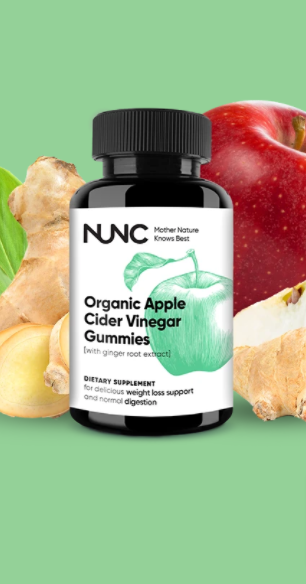The flu is dreaded by many, and rightfully so. It can cause a lot of discomfort for those who are infected with it and can even be deadly for some. It’s important to understand that the flu virus has different strains which either change from year to year or seasonally, like the common cold. Influenza A viruses cause about 90% of all flu illnesses each year in the United States.
The vaccine you get this winter may not protect you against next winter’s influenza A strains because they mutate rapidly! This article will discuss everything you need to know about immunity to the flu and how best to prevent yourself from getting sick in the first place.
Contents
What is the flu?
The flu is a respiratory virus that infects the nose, throat, and lungs. The most common cause of death from flu-related complications is pneumonia – this can happen when you have trouble breathing or your lung tissues are irritated by excessive amounts of mucus. Some other symptoms may be: sore throat, runny nose, fever (usually higher than 100 degrees), muscle aches/aches in general, headache, cough, nausea/vomiting.
What causes the flu?
Influenza viruses spread just like any other virus through droplets emitted into the air with coughing and sneezing; these droplets contain billions of particles that can settle on surfaces where they may survive for several hours to days at room temperature.
What are the symptoms of flu?
People usually have a cough, sore throat, aches, and pains in their muscles or joints. They may also experience fever (usually higher than 100 degrees), chills, headache as well as nausea or vomiting. These symptoms can last for up to two weeks with an average duration of four days if left untreated.
The person will start feeling better before they feel worse again – this is referred to as “flu bounce back”. If you still have these flu-like symptoms after one week then it could be something else – see your GP for diagnosis.
Symptoms that require medical attention:
Persistent high fever (>104°F) lasting longer than 24 hours; difficulty breathing or shortness of breath; chest pain or tightness that worsens with deep breaths, cough producing pink, bloody mucus (signs of pneumonia); severe vomiting and/or diarrhea.
How long does flu immunity last?
Flu immune lasts from one season to the next but people are also able to contract seasonal flu at any point in their life if they have not been vaccinated for it before.
A person’s age can affect how well they respond to vaccination so those under 65 years old may need a second dose in order to be fully protected against future infection. The vaccine is always available free on the NHS as soon as flu starts circulating, this year is no exception! Children who get the jab will only require two to go to the doctor.
Some people are at a higher risk of flu complications because they have underlying medical conditions or may be pregnant.
The best ways to keep from becoming ill with influenza is to get vaccinated and take good care of my health such as getting plenty of sleep, staying away from people I know who are sick and washing hands often after coughing or sneezing
It’s important for me to wash my hands before eating food so that I don’t transfer bacteria onto what I eat which can make me very sick if it gets in my body .
The influenza virus causes the disease called “influenza”.
Influenza can be a serious disease that requires medical attention. It infects many people per year and sometimes leads to hospitalization or death. Influenza outbreaks happen throughout the world every winter, when lots of people are indoors in close contact with each other. Flu viruses usually spread by droplets from coughs and sneezes. Touching surfaces like door handles after someone who just had an infectious illness has touched them or fluids such as blood may also lead to infection if you do not wash your hands with soap.
Related articles:
Herbs for immune system boost: all you need to know.
The natural immune response against the flu:
begins as soon as a person becomes infected with the flu virus. The body will produce antibodies to fight off the infection and prevent it from spreading any further, but these antibodies might not be strong enough to protect you against future infections or illnesses that are caused by different strains of flu viruses!
What happens in my body when I have the flu?
When you get sick with the flu, your body will send white blood cells to try and fight off the infection. These immune cells produce cytokines like interferons that signal other parts of your immune system to make more antibodies against the virus so it can be eliminated!
What if I don’t have flu immunity?
If someone does not develop natural immunity by getting infected with flu viruses, they may need a vaccine or some medication.
The influenza shot is recommended for everyone over six months old in order to prevent themselves from contracting this potentially deadly disease. There are also antiviral drugs that can be taken as a treatment once an individual becomes symptomatic (symptom means “signs and symptoms” such as fever).
How to get immune to flu?
Another way for those who don’t already have immunity is by having their blood cells exposed to a small amount of inactivated (dead) virus called immunization with vaccines! This process trains your body’s white blood cells how to fight off infection so should you be exposed again later on down the line, your body would know exactly how to respond.
The flu vaccine is given in a shot, and it protects against the strains of influenza virus that are predicted to be most common during the next flu season. It takes about two weeks for your body’s immune response to build up after being vaccinated. This means you need to get immunized early enough so there will still be plenty of circulating vaccines around when flu season arrives!
Foods that help with the flu:
- High vitamin C foods such as oranges and red peppers
- Garlic, ginger, honey, turmeric help fight flu symptoms.
- Honey is a natural cough suppressant that also increases the immune system’s response to viral infections when taken with lemon or apple cider vinegar.
foods to avoid when you have the flu:
- Dairy
- Caffeine (coffee, tea) which can make you more dehydrated.
Non flu remedies:
- Sleep humidifier or vaporizer to increase moisture in the air and loosen congestion…..
- Flu shots for children under age two: Young children are at high risk of getting influenza because their immune systems aren’t fully developed. The vaccine is safe and there’s no evidence that it causes any serious side effects or long-term problems such as autism.
In fact, the flu vaccine may prevent some of the complications and deaths that can come from the flu.
– Flu shots are recommended for:
- children six months to five years old;
- people aged 50 or older;
- pregnant women;
- anyone with long term health problems such as asthma, heart disease or diabetes.
Read More: How to Eat an Apple a Day: The New Weight-Loss Apple Diet?
Steps for avoiding the flu virus:
Get vaccinated every year – Wash hands frequently or use alcohol sanitizer when out in public places such as restaurants where people are more likely to touch things like door handles with their dirty hands that carry germs from other people’s mouths – Stay home if you’re feeling sick to prevent spreading the disease around – Don’t let children come into contact with any surfaces at school that might have been touched by someone else who is sick because they can easily get the flu – Cover your mouth and nose with a tissue, shirt sleeve or handkerchief when you cough or sneeze to prevent spreading germs
Frequently wash clothes that have been touched by someone who is sick because they might carry the virus on their clothing.
Don’t touch your eyes, nose, or mouth after touching surfaces in public areas where there are more people like schools, grocery stores, and shopping centers as these parts of our bodies can easily contract viruses from other people’s hands.
Avoid close contact such as kissing children; shaking hands with others; sharing utensils such as forks, knives, and spoons; using cutlery without washing it first.
So what can someone do?
There is one type of vaccine called “flu shots” which may help reduce your chances of getting sick if you get them before influenza starts circulating in your community; they’re often recommended for people living at high risk for complications from flu such as pregnant women, young children who have asthma, adults age 65 years old or older (who were born before 1957) and anyone who has chronic medical conditions like diabetes.
Related Article: Herbs for immune system boost: all you need to know
The flu vaccine:
is available in the form of a shot, and as an eyedropper for children (with age-appropriate vaccine)
contains three strains of flu to cover most common circulating varieties
can be given at any time from October through March; it’s also recommended that pregnant women get vaccinated during their third trimester or before giving birth.
If you’re on immune-suppressing medication, have had Guillain Barré Syndrome within six weeks of getting a flu vaccination, are allergic to eggs, or if your egg allergies aren’t known then talk with your doctor first.
The flu vaccine is a safe and effective way to prevent the illness caused by influenza virus infection (flu). Influenza vaccination can reduce flu illnesses, doctor visits, missed workdays, and hospitalizations in people of all ages. It takes about two weeks after receiving the flu shot for antibodies that protect against various strains of flu to develop in your body.
Some individuals may not get as much protection from this year’s vaccines because some viruses change over time or have mutated so they are no longer covered by available vaccines.
If you’re around someone who has it you might still catch it if their immune system does not fight off the disease quickly enough, or at all, and there could be more than one strain present at once given how common flu is.
Side effects from flu vaccine:
Some people have side effects from the influenza shot. These can include soreness, redness, or swelling at the site of injection as well as fever and aches. Fortunately, these symptoms are usually mild but they may prevent some people from receiving a flu vaccine because they fear that it will make them sicker than if they had contracted the virus naturally.
The following are some things that will keep you from becoming immune to the flu!
- Soreness, redness, or swelling at the site of injection
- Fever and aches prevents some people from receiving a flu vaccine because they fear that it will make them sicker than if they had contracted the virus naturally
- Another way for those who don’t already have immunity is by having their blood cells exposed to the flu virus
- Can also be protected by getting the flu vaccine, washing your hands frequently, and staying home if you’re sick
- Immunity is not lifelong so people need to get vaccinated every year.
For the best protection, get a flu shot each year before flu season starts in your area and make sure to wash hands frequently with soap and water or an alcohol-based hand gel, cover coughs and sneezes using a tissue or clothes sleeve when possible, keep surfaces that could be touched by others (like keyboards) clean especially if you’re sick yourself—and stay home from work or school while feeling ill. This helps stop the spread of germs which are what cause illnesses like colds as well as flu.
Related articles:
The Immune System: A Guide to Blood, Antigens and Stem Cells
How to build your immune system to fight HPV
Does Apple Cider Vinegar Help With IBS?











0 Comments